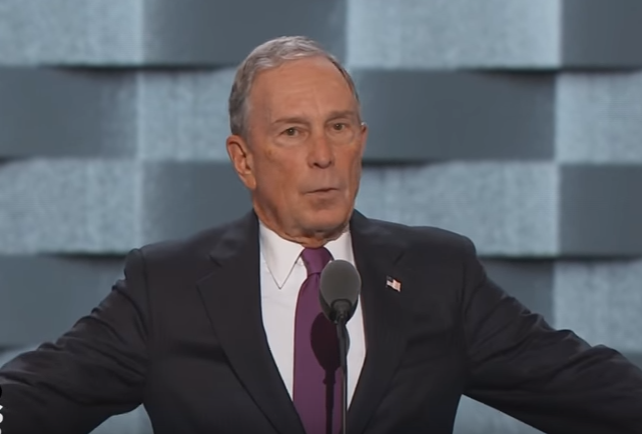Mike Bloomberg Not Responsible for Rape Allegations Against Bloomberg Execs
Allegations of rape were made dating back to 2013.
Billionaire Mike Bloomberg is off the hook when it comes to the accusations of rape which were levelled against a former senior exec of his Bloomberg LP. According to the New York Daily News, the New York Court of Appeals ruled that according to law Mr. Bloomberg cannot be sued personally for what his executives did.
A onetime Bloomberg employee accused company execs of drugging and raping her. The woman, known only as Margaret Doe, alleged that Nick Ferris twice drugged and raped her in 2013 while she was employed in sales with Bloomberg L.P. and Ferris was then Bloomberg’s global business director. At the time, Mike Bloomberg was still serving as the Mayor of New York City.
But the complaint charged that Bloomberg was still responsible for his employee’s actions because he was the one who created the work environment in which “sexist and sexually charged behavior” could take place. But Judge Michael Garcia wrote in his ruling, which was released on February 11, that the plaintiff would need to prove that Mr. Bloomberg had personally “encouraged, condoned or approved of” the actions committed against her.
The court also ruled that Mike Bloomberg is not considered an “employer” under the definition as outlined by New York City’s human rights law.
“The statute is clear as to when an employer is liable: for the employer’s own offending conduct and vicariously for some actions of others,” Garcia wrote.
“But the term ‘employer’ is undefined, generating confusion as courts have endeavored to determine who is an employer in the context of the extensive — and at times strict — liability imposed,” added judge Garcia.
Judge Jenny Rivera, however, disagreed. In her dissent from the court’s ruling she wrote that the majority had provided to broad of a protection to corporate leaders from such responsibility in these matters. “Maximizing the accountability of those at the top encourages preemptive action by captains of industry with the means to effectuate broad workplace change,” she wrote.
“Applying its new rule, the majority concludes that this defendant is not an employer, notwithstanding his commanding role in the company. This interpretation of the statute is untenable, and so I dissent.”
Read more about: Mike Bloomberg



